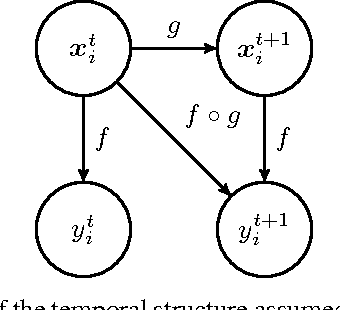Andrea Tacchino
PRESOL: a web-based computational setting for feature-based flare forecasting
Oct 02, 2025Abstract:Solar flares are the most explosive phenomena in the solar system and the main trigger of the events' chain that starts from Coronal Mass Ejections and leads to geomagnetic storms with possible impacts on the infrastructures at Earth. Data-driven solar flare forecasting relies on either deep learning approaches, which are operationally promising but with a low explainability degree, or machine learning algorithms, which can provide information on the physical descriptors that mostly impact the prediction. This paper describes a web-based technological platform for the execution of a computational pipeline of feature-based machine learning methods that provide predictions of the flare occurrence, feature ranking information, and assessment of the prediction performances.
A temporal model for multiple sclerosis course evolution
Dec 02, 2016


Abstract:Multiple Sclerosis is a degenerative condition of the central nervous system that affects nearly 2.5 million of individuals in terms of their physical, cognitive, psychological and social capabilities. Researchers are currently investigating on the use of patient reported outcome measures for the assessment of impact and evolution of the disease on the life of the patients. To date, a clear understanding on the use of such measures to predict the evolution of the disease is still lacking. In this work we resort to regularized machine learning methods for binary classification and multiple output regression. We propose a pipeline that can be used to predict the disease progression from patient reported measures. The obtained model is tested on a data set collected from an ongoing clinical research project.
 Add to Chrome
Add to Chrome Add to Firefox
Add to Firefox Add to Edge
Add to Edge